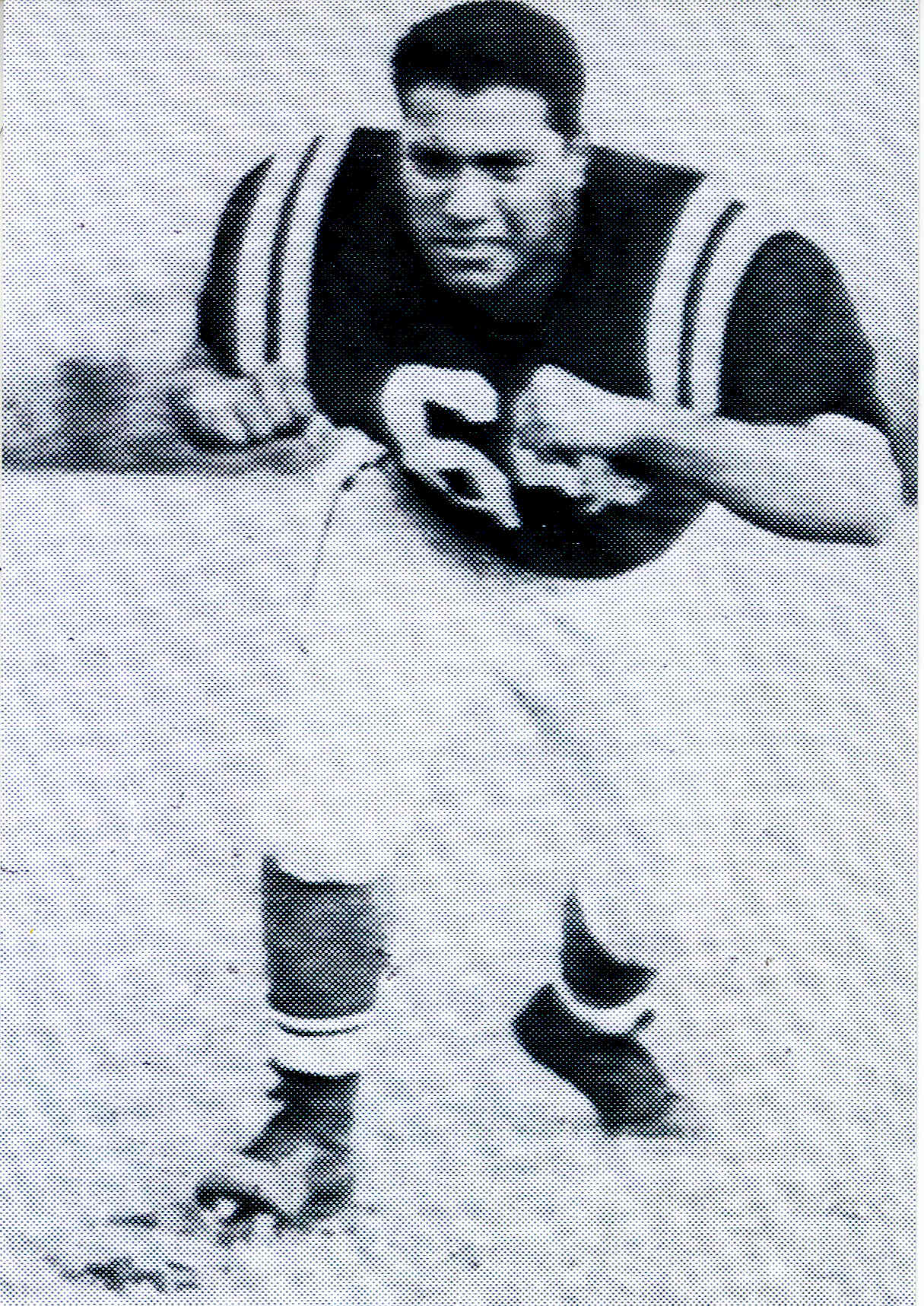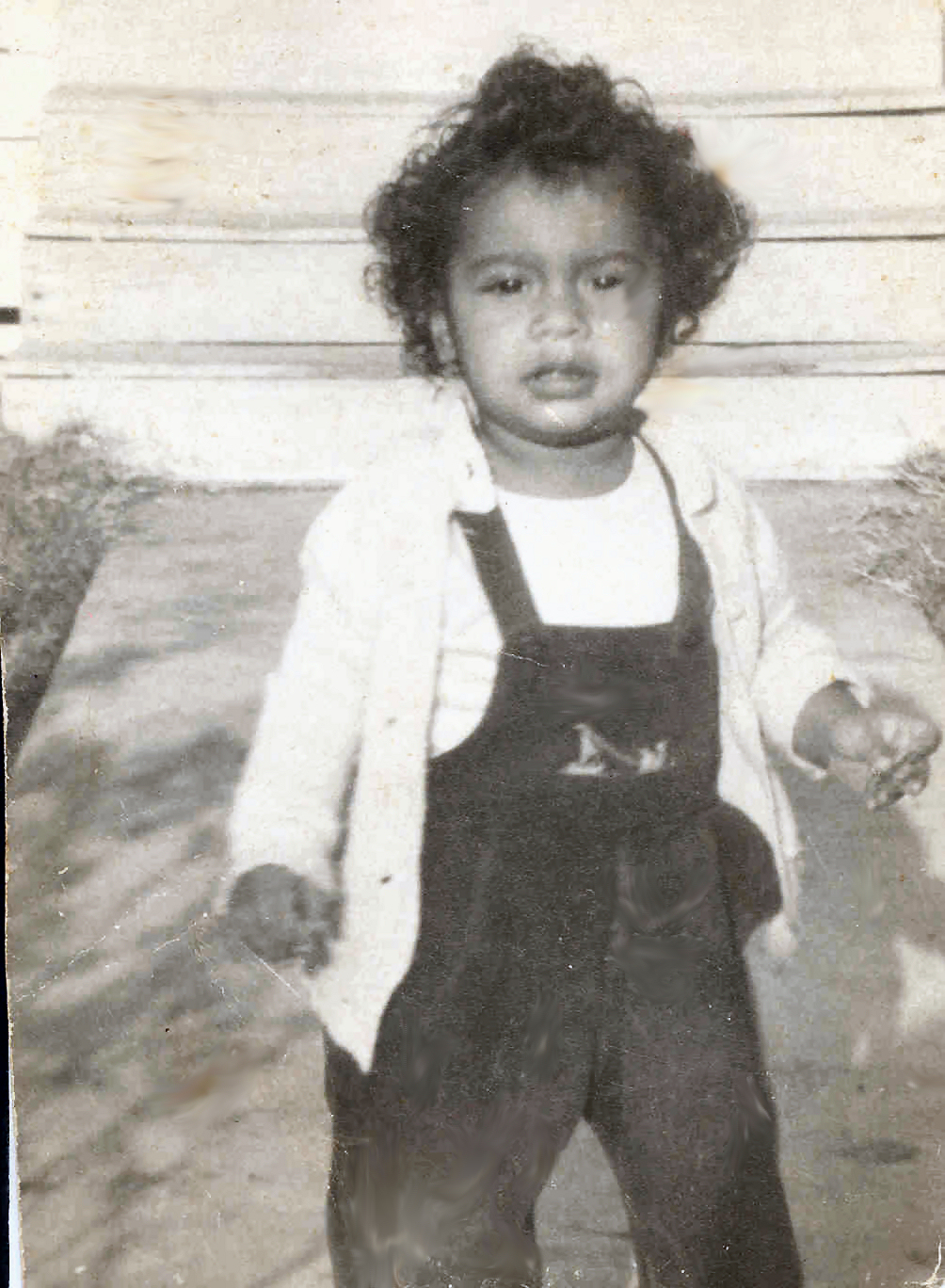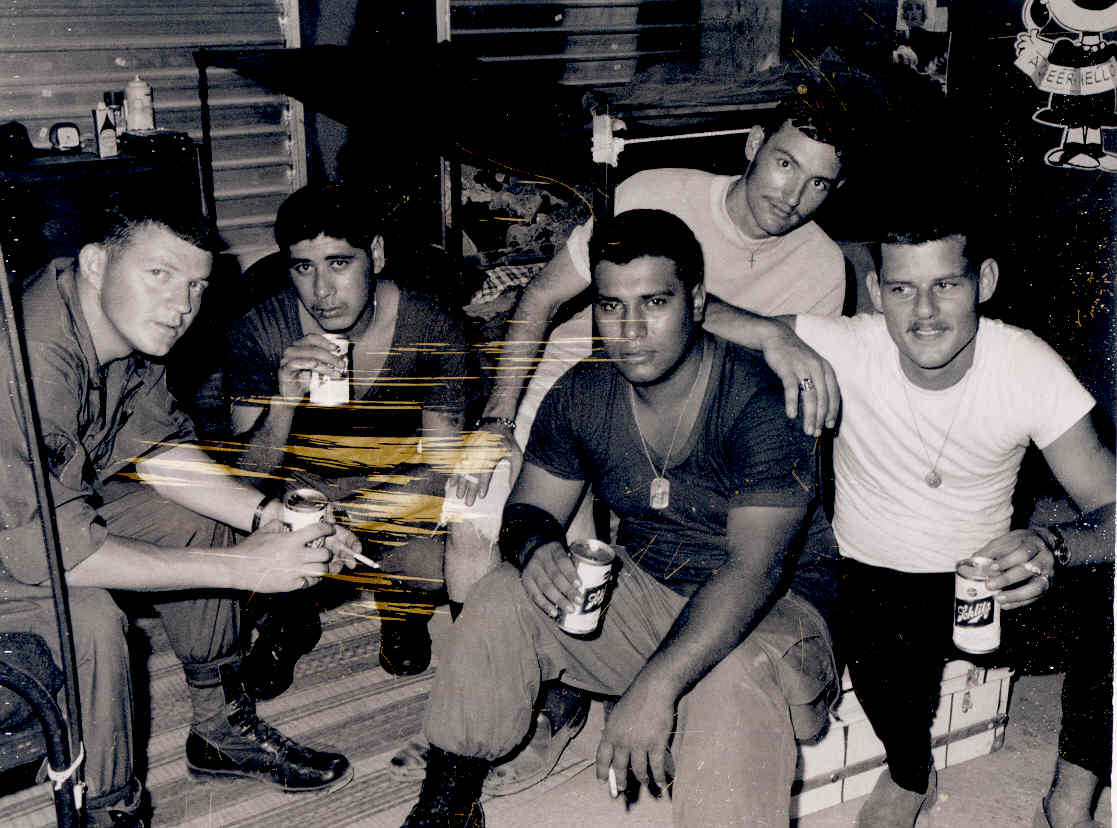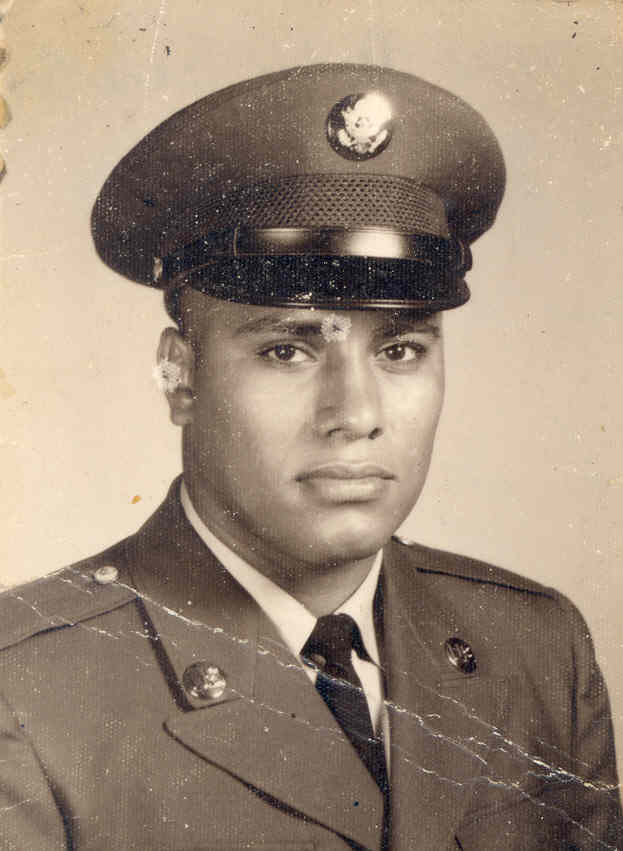TRANSCRIPTION
How was High School life?
Great I wish I was doing it all over again. The learning experience, some take education as a next step, others just to get by. I'll always remember High School by pictures, events, and talking to old friends. Now and days going back, to football games I sit their looking at the teenagers that are going to graduate, I think how many would progress or continue their education. Not everybody wants their educations. It's hard to find a job without degrees, a good job with education is always going to be there, but it's not for everybody. Compromising, identifying, and hard times it takes.

Why did you join the armed forces directly after graduating high school?
No work, small town no work. Their was two types of joining the military, first was voluntary and second was the draft. All in all most friends joined the service. Six guys joined the same time I did on 6-6-66.
What did your family think of you joining the service and going to war?
Like any parents, they were scared, but happy. Their was not much they could do, but send their blessings with me to Vietnam and they prayed that I would come back safe and sound.

Can you describe how basic training was?
Basic training was very hard, strict, and they were always on you. For training, I was stationed in Ft. Polk Louisiana for eight weeks. We were disciplined to obey and follow rules day and night to make us better. It was a lot of training; they would push you to your limits, and even wake you up in the middle of the nights. We learned how to obey all commands, from the top to bottom. If we didn't obey commands, there were punishments. It was very physical a lot didn't make it because they wouldn't pay attention and would have to start over again. If you were not in physical shape, they would release you. Not obeying they would dishonorable discharge.
How did you feel about your first unit deployment platoons orders being cancelled?
I really didn't think anything, because I was still aware of going. It was just a matter of when were we going.
How did you feel when you found out that you were being deployed as an individual and not with your platoon?
I didn't really feel a certain way, things happen. I never got to see the same people again. You really don't become friends, because you don't remember.
What was your occupation and what were your daily duties in the war?
My M.O.S Military Occupational Specialty was Quarter Master, where I worked on supplying the bases and hospital requirements during Vietnam, operations such as setting up connections, showers, laundry machines. I also did shore man crane operations and was a driver for Vietnam motor pools to transfer during Vietnam. We were in contract with a large manufactory. Outside the medical perimeter, we would transport food, one day we got attacked for food, and they blew up our ammonization.
Did you write war letters and did you keep them?
At the time when I was married to my wife, I would write her, sometimes I would write my parents. You miss everyone; you're lonely, and scared. I didn't have as much fear as those in combat because I was usually in the hospital zone along with some generals.
Did you have any communication with your wife, while gone to the Vietnam War?
The only communication I had with my wife at the time was when I had leave time after six months in Vietnam. Sidney Australia and Hawaii were safe spots to visit so I meet her in Hawaii and then returned back to complete my tour.
How was the environment/street scene during Vietnam and were you able to sleep comfortably in war?
Drugs such as Marijuana, hash, opium were easy to get, little kids would be saying GI want some cigarettes and stored inside were drugs. People live in sheds, no toilets; there are few that had homes. For us as Americans to see this was wow. A barrack consists of 32 people. The Vietnamese would attack at night, to be safe we would have to go to the bunkers at night while helicopters would fly around the sky.
Where you ever injured in war and how?
Injured, no scared yes, every time we were outside we were armed because we didn't know if and when were going to be attacked. To transport sometimes it would take 20-30 miles by vehicle. It would take 2-3 men for operations, it was dangerous, and you never went by yourself.

Did the thought of being killed ever cross your mind, and how did you deal with such thoughts?
I had a lot of fear but you still do what you have to do. When it was my time to go there were two plane carriers loaded with GI's. The first plane to land with soldiers had first got hit. The second plane was not allowed to land after this hit, which was the plane that I was on; we would just circle the place. Different people were going and coming daily, those were happy to be going back and those who were sad to be going. Especially fearful that we hadn't landed yet and the attacking had already began. The happier group left leaving with drinking, cheerful drinking up a storm, especially those who had served in combat and action.
Did you receive any medals?
Medals in being in a foreign country and beyond recognition, but not everyone is in infantry in the military.
What is one memory you will always remember form the Vietnam War?
Memories that I made it back safe and sound. I will remember transporting, also the operating rooms, seeing heads blown, seeing drapes knowing the soldier is dying. Knowing that you're going to make it and others aren't. Seeing adult in diapers, as vegetables, not having a mind, screaming and hollering. I'll always remember everyday going to work and having to see all that, all of them always their. "What I saw was enough."

How was life after war and after serving your three years?
After Vietnam, Germany put an icing to my ending of service. It was a rough road with ups, downs, good, bad, but it's what you make of it. The rough gets real rough, if you have a lot of problems, then it's hard. When you're self employed, you're blessed and make the best, from the military I've learned not to be defeated and learn to keep trying. If you start jeopardizing, you'll have problems. Personally, myself, I've had a good living but a very bumpy journey.
Did you have any regrets in joining the service?
Not at all when you volunteer, do your best! I did not want to re-enlist. The Military was very good and beneficial. Although, if your wife was expecting or your family was ill you didn't have a say so, only say was to say good bye. Your family was well taken care of. After my last year was up, they asked me if I would stay and train the new ones. I said no because I wanted to come back home and have my bones attached.
Do you stay in contact with anyone in your platoon today or anyone that was with you in the three years of service?
I would like to get in contact with two people. One from boot camp his name is Alex Jimenez and Richard Saldana. I would like to see what happened and see what they did with their lives.
Do you share your experiences with anyone and with whom?
When people ask, I share; a lot don't like to talk. I don't want to recall seeing those dying in the hospital zone that I would work in. I could remember them saying help me, help me GI. The military is not all just war, you get to see other countries, it's seeing something you're not practical to in a different style.

How do you feel about war today?
War today… To have our freedom yes, I wouldn't want a communist to invade. I would do it again, let's go; to fight for our country. I would hope everyone would think the same. You can't compare a country to the United States, anyone who says something bad about our home, then get up and go, leave it. If there is another, I need to see it first. What we have built here has to be strong. Men and women need to defend our country. Like John F. Kennedy said "And so, my fellow Americans, ask not what your country can do for you; ask what you can do for your country."
Is there anything else you would like to add to this interview?
Knowing what I went threw, knowing my grandparents, parents, some kids are gone, theirs a lot good and a lot bad; but it shows how you handle your life. Some will listen others won't and you can only do your best. Keep trying; life is not that easy, it's not handed in a Pedi stool, and not all peaches and cream. Work day and night to make a better life. You wish you could change then but not now. I don't regret and wouldn't change any of it. Enjoy the rest of your life until the good lord takes us.

